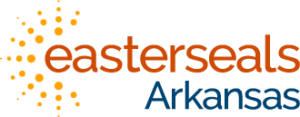
According to the CDC, 61 million adults in the U.S. have some kind of disability. That’s 26% of the adult population or one in four people. Globally, over 1 billion people live with some kind of intellectual, developmental, or physical disability. But despite the prevalence of disability in our communities, in 2020, only 17.9% of people with disabilities were employed—and of those who were employed, 29% were working part-time. Both of these statistics are significantly higher than for people without disabilities, even taking into account the level of education, age, and socioeconomic status.
These numbers point to the very real struggle to find and maintain employment for people living with disabilities. The barriers to recruitment and employment make the already difficult process of job hunting even more challenging. For instance, according to the Kessler Foundation, only 30% of U.S. companies make a concerted effort to include people with disabilities in their recruitment efforts.
At Easterseals, we believe that this is based on a lack of information and awareness rather than intention. Study after study has found that diversity and inclusion in the workplace leads to higher productivity, better employee morale, higher levels of innovation, lower rates of absenteeism, and higher-quality work.
This is because, at its core, disability inclusion is a recognition of employees as human. And that’s a mindset that benefits every employee.
The Benefits of Hiring People With Disabilities
The bottom line is that employees with disabilities are just that—employees. To get the most out of a certain position or workflow, you should be hiring the right person with the right skills for the job. When your workplace is operating from a culture of diversity and inclusion, this just means a larger pool of candidates from which to pick. And during a period of American history where there is a hiring shortage, having an inclusive workplace can give you an edge over other companies.
People with Disabilities are Reliable and Productive Employees
The leading myth that companies hold about hiring people with disabilities is that they will somehow hamper or slow down the company’s productivity. But people with disabilities have often spent decades figuring out how to work with and around their disability, and tend to do just fine in the workplace—if not better than their non-disabled coworkers.
In fact, research from Accenture has found that employers report 30% higher profit margins and 28% higher revenue after making a concerted effort to hire persons with disabilities. Across all industries, people with disabilities have higher attendance rates, lower turnover, and longer tenure within the companies that hire them than employees without disabilities.
In one case study, a Walgreens warehouse hired multiple employees with a variety of disabilities. People with disabilities made up 40% of that warehouse’s workforce. They found that, within a year, productivity was up 20%.
When people with disabilities were placed at Amazon, they had higher attendance and 37% higher work quality than their coworkers without a disability. They also unilaterally achieved perfect safety records.
People With Disabilities are Innovative and Creative
People with disabilities have extensive experience in thinking outside the box. When everyday tasks are made difficult or impossible by your disability, you find ways to get around them. Innovation, adaptability and the ability to think critically are highly prized by hiring managers—and yet people with disabilities are often overlooked during the hiring process.
Disability inclusion is about more than philanthropy and humanity. It’s about enriching our communities and workforces with the unique skills and abilities that only people with certain life experiences can bring to the table.
David Casey, Vice President of Workforce Strategies and Chief Diversity Officer for CVS Health, put it this way in the Accenture report on disability inclusion:
“People with disabilities tend to be some of the most creative, innovative and, quite frankly, most loyal employees. A person with a disability wakes up every day thinking about being innovative – that is a skill set. That ability to problem solve is innate to them. Our training programs quickly went from philanthropy to skill search.”
No matter what type of disability a person is dealing with, the ability to adapt, overcome, and problem-solve is what has allowed them to make it to your company today. Take advantage of these unique skill sets for the betterment of your company.
Increase Employee Engagement and Retention
When people feel valued and included, they are much more engaged and productive at work. As engagement increases, so too does loyalty and enthusiasm. When you hire people with disabilities, you are giving someone a chance to prove their skills and abilities. This attitude of enthusiasm and engagement tends to rub off on the people around them, increasing productivity and job satisfaction for the whole team.
Truly inclusive practices focus on making accommodations for people with all types of disabilities, but they also have the side-effect of creating a more flexible and accepting work culture overall. When you examine policies and procedures from a lens of diversity and inclusivity, it makes them more accessible and acceptable to all.
How Much Does It Cost to Make Accommodations?
Another common misconception about recruiting or hiring people with disabilities is that it’s extremely expensive and time-consuming. However, 31% of the accommodations don’t cost a dime to implement, and the others tend to come out at about $500 per employee. When you think about the average cost of recruitment, training, and turnover, $500 is a small price to pay for an employee who will likely stay with your company much longer than the average employee.
And in a post-COVID workforce, this obstacle is even less of a problem. Many accommodations for employees with disabilities are focused on transportation to and from work and mobility and accessibility in the workplace. If your employees have the capability to work remotely, you’ve suddenly hurdled that obstacle.
Make Your Workplace More Inclusive
Want to learn more about how disability inclusion can strengthen your workforce? Contact Easterseals Arkansas about our job placement and employer partnership programs.
